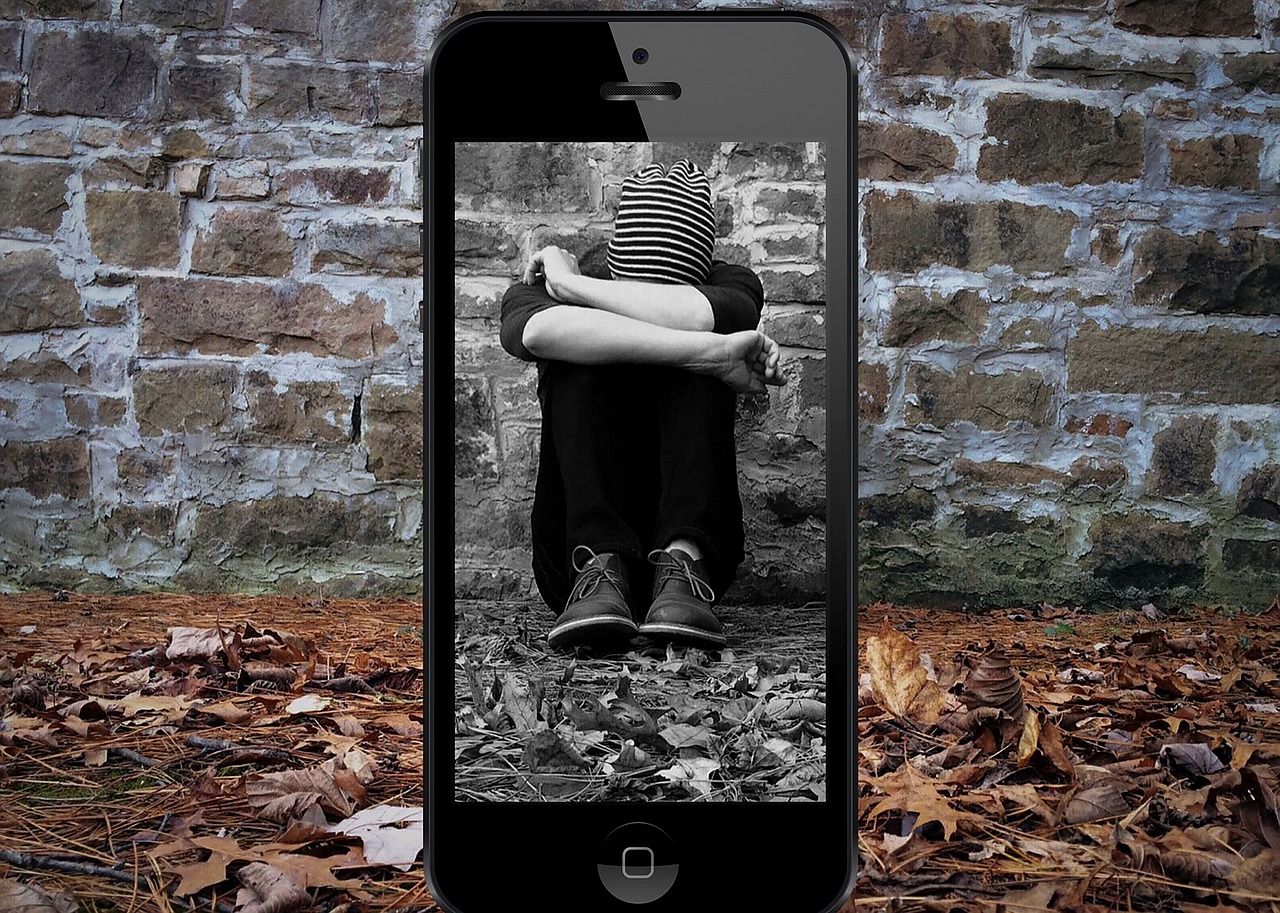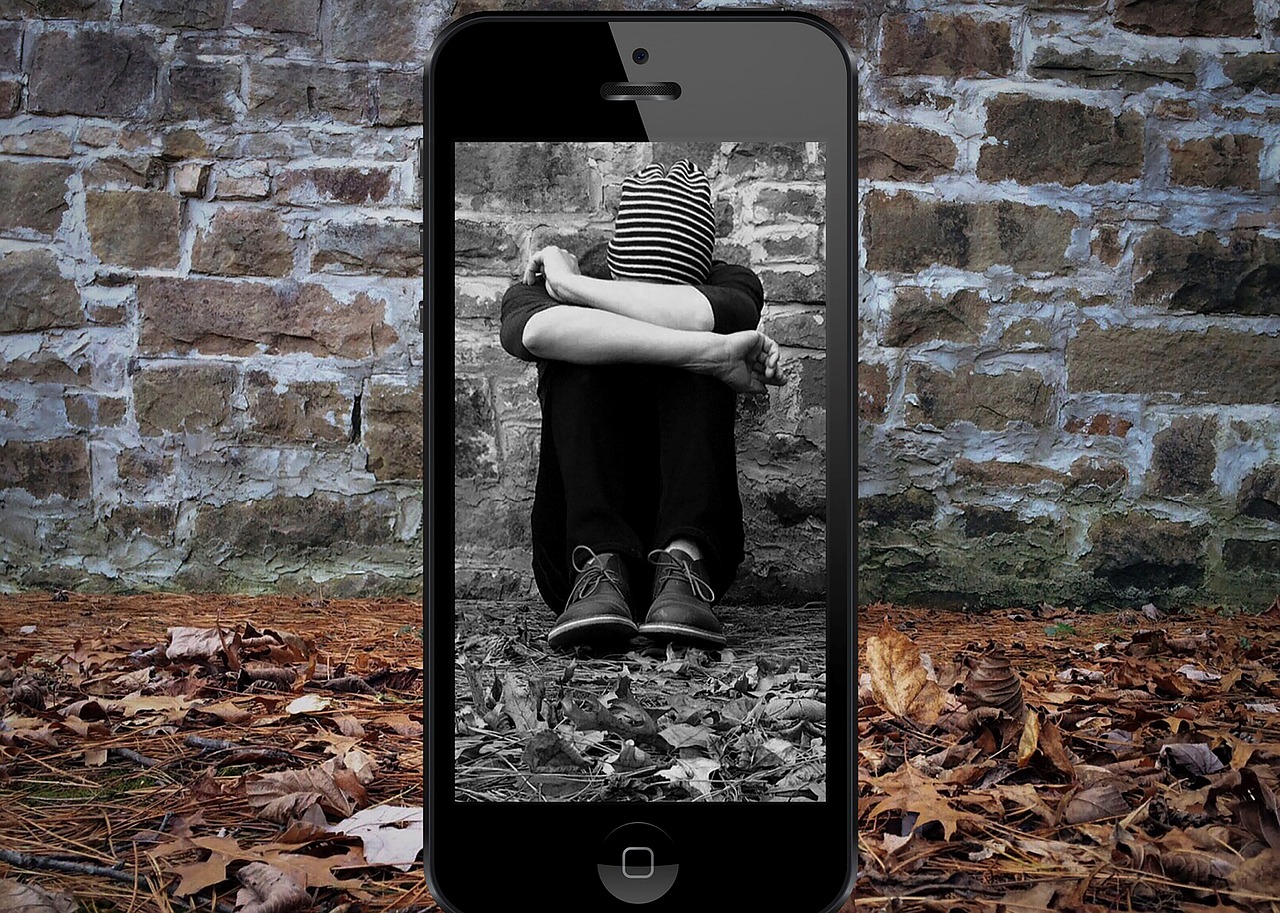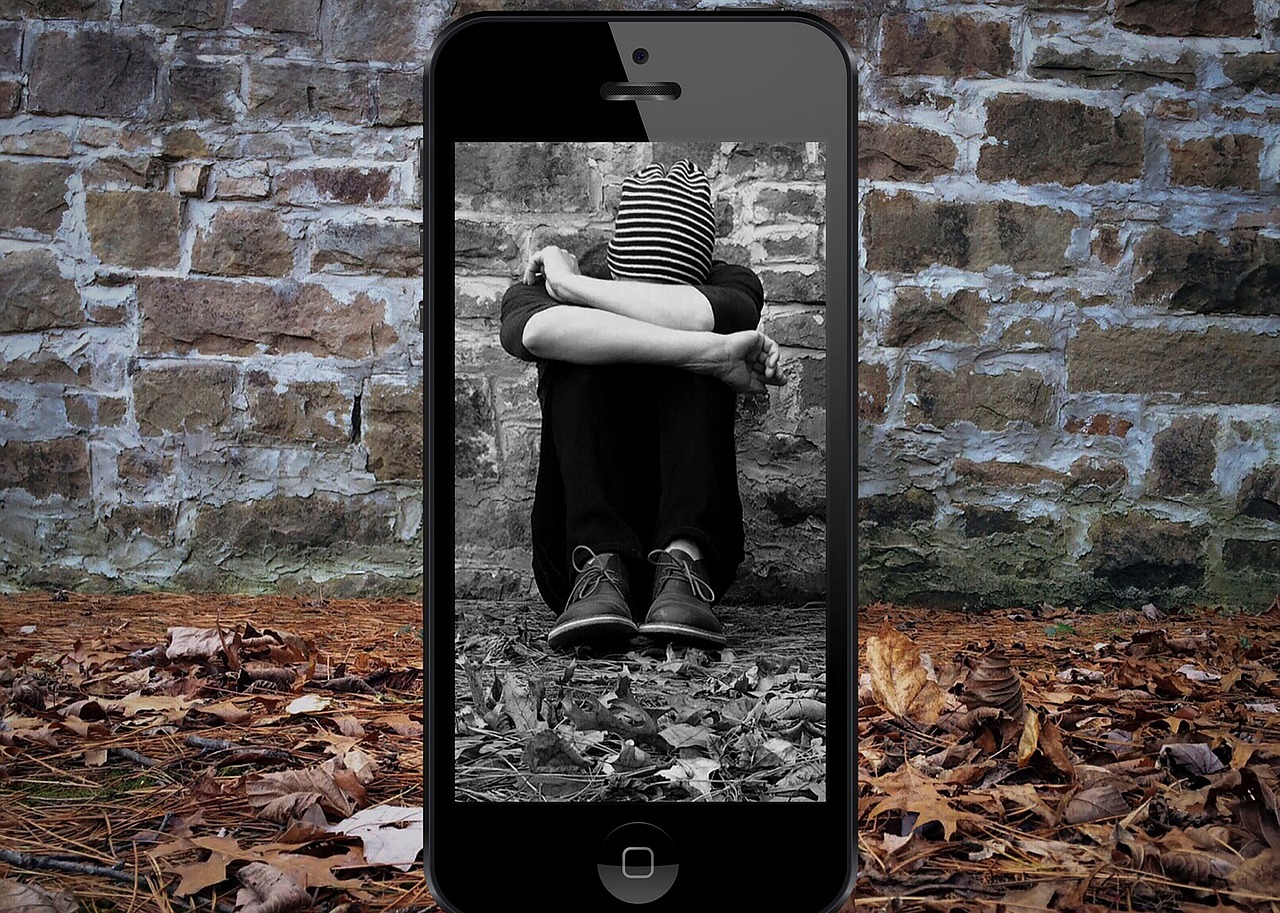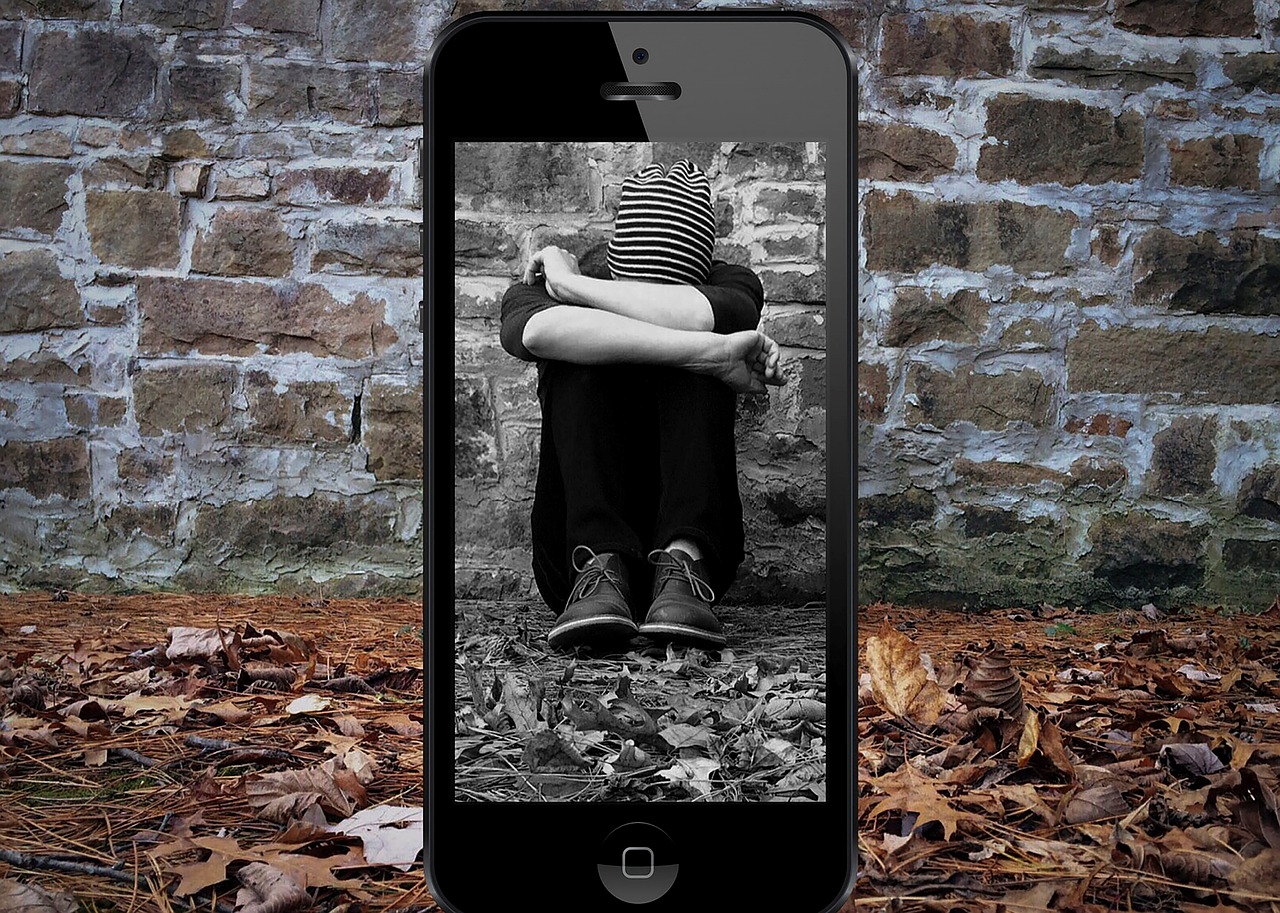Tips for Dealing with Cyberbullying on Social Media
This article provides essential strategies and insights for individuals facing cyberbullying on social media platforms, aiming to empower them with effective tools to combat online harassment and promote a safer digital environment.
Cyberbullying involves the use of digital platforms to harass, threaten, or demean individuals. Recognizing its forms and impacts is crucial for effective intervention and support for victims. It can manifest in various ways, such as through mean comments, spreading rumors, or sharing private information without consent. The anonymity of the internet often emboldens bullies, making it easier for them to inflict harm from behind a screen. This creates a hostile environment that can leave lasting scars on individuals, particularly young people who are still developing their self-esteem and identity.
Identifying the signs of cyberbullying can help victims and bystanders take appropriate action. Common indicators include sudden changes in behavior, withdrawal from social interactions, and unexplained emotional distress. For instance, if someone who used to be active on social media suddenly stops posting or engaging with friends, it could be a red flag. It's essential to approach such situations with empathy, as the victim may be struggling to cope with their feelings.
The emotional toll of cyberbullying can be profound, leading to anxiety, depression, and low self-esteem. Understanding these effects is vital in providing support to those affected. Victims may feel isolated and helpless, as if they are trapped in a never-ending cycle of negativity. It's important for friends and family to recognize these signs and offer a listening ear. Sometimes, just knowing that someone cares can make a world of difference.
Victims of cyberbullying may experience long-lasting psychological effects, affecting their personal and professional lives. Awareness of these consequences can help in developing preventive measures. For example, individuals may carry the scars of their experiences into adulthood, affecting their relationships and career opportunities. It’s crucial to foster resilience and provide coping mechanisms for those who have experienced cyberbullying.
Cyberbullying can strain relationships with friends and family, creating isolation for the victim. Recognizing this impact is essential for fostering a supportive environment. Victims may feel embarrassed or ashamed, leading them to withdraw from their loved ones. Open communication is key; encouraging victims to share their experiences with trusted individuals can help bridge the gap and restore connections.
Support systems play a crucial role in helping victims cope with cyberbullying. Friends, family, and professionals can provide the necessary emotional and practical assistance. It's vital for those affected to know that they are not alone in their struggles. Building a network of supportive individuals can empower victims and give them the strength to confront their challenges head-on.
Addressing cyberbullying requires proactive measures. Victims should be encouraged to document incidents and report them to platform administrators or authorities to ensure accountability. Keeping records of abusive messages, screenshots, and timestamps can be invaluable when seeking help. It’s like building a case; the more evidence you have, the stronger your position becomes.
Understanding how to report cyberbullying on various platforms is essential. Each social media site has specific guidelines for reporting abusive behavior, which can help in taking action. For instance, platforms like Facebook and Instagram provide options to block users and report content. Familiarizing oneself with these features can empower victims to take control of their online experience.
In severe cases, seeking help from mental health professionals can provide victims with coping strategies and emotional support, aiding their recovery from the trauma of cyberbullying. Therapy can be a safe space for individuals to express their feelings and develop resilience. Just as we go to the gym to strengthen our bodies, seeking therapy helps strengthen our mental health.
- What should I do if I see someone being cyberbullied?
If you witness cyberbullying, it's important to intervene safely. You can report the behavior to the platform, support the victim, and encourage them to seek help.
- How can I protect myself from cyberbullying?
Adjust your privacy settings, be cautious about the information you share, and consider blocking or reporting users who engage in harmful behavior.
- Is cyberbullying illegal?
In many jurisdictions, cyberbullying can fall under harassment laws. It's essential to understand the laws in your area and seek legal advice if necessary.

Understanding Cyberbullying
This article provides essential strategies and insights for individuals facing cyberbullying on social media platforms, aiming to empower them with effective tools to combat online harassment and promote a safer digital environment.
Cyberbullying involves the use of digital platforms to harass, threaten, or demean individuals. It's like being in a digital boxing ring where the punches come from behind a screen, making it harder to dodge or fight back. The anonymity of the internet can embolden individuals to say things they would never dream of saying face-to-face. This form of bullying can occur in various places such as social media, online forums, and even through text messages. It can take many shapes, including:
- Harassment: Repeatedly sending offensive messages.
- Doxxing: Publicly revealing private information about someone.
- Impersonation: Pretending to be someone else to damage their reputation.
- Exclusion: Intentionally excluding someone from online groups or activities.
Recognizing the forms of cyberbullying is crucial for effective intervention and support for victims. The impact of cyberbullying can be profound, affecting not just the victim but also the community around them. It's like throwing a stone into a pond; the ripples spread far beyond the point of impact. Understanding these dynamics helps in creating a supportive environment where victims can feel safe and empowered to speak up.
Moreover, the consequences of cyberbullying can extend beyond emotional pain. Victims might face academic challenges, social isolation, and even physical health issues as a result of the stress and anxiety caused by online harassment. In many cases, the digital footprint of bullying can linger long after the incident, making it essential for both individuals and communities to address the issue head-on.
In summary, understanding cyberbullying is the first step toward combating it. By recognizing its forms, acknowledging its impacts, and fostering a culture of support, we can work together to create a safer digital space for everyone.
Identifying the signs of cyberbullying can help victims and bystanders take appropriate action. Common indicators include sudden changes in behavior, withdrawal from social interactions, and unexplained emotional distress.
The emotional toll of cyberbullying can be profound, leading to anxiety, depression, and low self-esteem. Understanding these effects is vital in providing support to those affected.
Victims of cyberbullying may experience long-lasting psychological effects, affecting their personal and professional lives. Awareness of these consequences can help in developing preventive measures.
Cyberbullying can strain relationships with friends and family, creating isolation for the victim. Recognizing this impact is essential for fostering a supportive environment.
Support systems play a crucial role in helping victims cope with cyberbullying. Friends, family, and professionals can provide the necessary emotional and practical assistance.
Addressing cyberbullying requires proactive measures. Victims should be encouraged to document incidents and report them to platform administrators or authorities to ensure accountability.
Understanding how to report cyberbullying on various platforms is essential. Each social media site has specific guidelines for reporting abusive behavior, which can help in taking action.
In severe cases, seeking help from mental health professionals can provide victims with coping strategies and emotional support, aiding their recovery from the trauma of cyberbullying.
Q: What should I do if I witness cyberbullying?
A: If you see someone being bullied online, it's important to take action. You can support the victim by reaching out to them privately, reporting the behavior to the platform, and encouraging them to seek help.
Q: Can cyberbullying happen to adults?
A: Absolutely. Cyberbullying can affect individuals of all ages, including adults in the workplace or social settings.
Q: How can I protect myself from cyberbullying?
A: To protect yourself, be mindful of the information you share online, adjust your privacy settings, and consider who you interact with on social media.
Q: What resources are available for victims of cyberbullying?
A: There are numerous resources available, including hotlines, support groups, and counseling services specifically geared toward helping victims of cyberbullying.

Recognizing the Signs
When it comes to cyberbullying, the signs can sometimes be subtle, slipping under the radar like a thief in the night. It's crucial to be vigilant and aware of the changes in behavior that might indicate someone is suffering from online harassment. Victims often experience a range of emotional responses, which can manifest in various ways. For instance, you might notice a friend suddenly becoming more withdrawn or irritable. This shift can be a red flag, suggesting that something is troubling them.
Some common indicators of cyberbullying include:
- Sudden Changes in Behavior: If a person who was once outgoing suddenly becomes quiet and reserved, it could be a sign of distress.
- Withdrawal from Social Interactions: Victims may begin to avoid social gatherings or even online interactions, preferring to isolate themselves.
- Unexplained Emotional Distress: Frequent mood swings, anxiety, or signs of depression can indicate that someone is struggling with the effects of cyberbullying.
These signs can be likened to a storm brewing on the horizon; they may not seem significant at first glance, but they can lead to turbulent emotional weather. It’s essential to approach the situation with empathy and understanding. If you suspect someone is being bullied online, don’t hesitate to reach out. A simple conversation can go a long way in providing the support they might desperately need.
The emotional toll of cyberbullying is profound and can lead to serious issues such as anxiety, depression, and a significant drop in self-esteem. Imagine carrying a backpack filled with heavy stones; each instance of bullying adds another stone, making it harder to move forward. Recognizing these effects is vital for offering the right kind of support. It's not just about stopping the bullying; it's about helping the victim reclaim their sense of self-worth and emotional stability.
Victims of cyberbullying may face long-lasting psychological consequences that can ripple through their personal and professional lives. The scars left by such experiences can affect their ability to trust others, form new relationships, or even perform well in school or work. Awareness of these consequences can help in developing preventive measures and intervention strategies that support victims in their recovery.
Cyberbullying doesn’t just affect the victim; it can create a ripple effect that strains relationships with friends and family. Victims might feel isolated, as if they are trapped in a bubble of loneliness. This isolation can lead to misunderstandings and further emotional distress. Recognizing this impact is essential for fostering a supportive environment where victims feel safe to share their experiences and seek help.
In conclusion, being aware of the signs of cyberbullying is the first step in combating it. By recognizing these indicators, we can create a community that not only supports victims but also actively works to prevent bullying in the first place. Remember, it's not just about what you see; it's about understanding the deeper emotional currents that may be at play.
Q: What should I do if I suspect someone is being cyberbullied?
A: If you suspect someone is being cyberbullied, approach them with care. Let them know you're there to listen without judgment. Encourage them to talk about their experiences and offer your support. It may also be helpful to guide them on how to report the bullying to the appropriate platforms.
Q: Can adults be victims of cyberbullying too?
A: Absolutely! Cyberbullying can affect individuals of all ages. While it may be more commonly associated with teenagers, adults can also experience harassment online, especially in professional settings.
Q: What are the best ways to report cyberbullying?
A: Reporting procedures vary by platform, but generally, you can find a 'Report' option near the offending content. Make sure to document the incidents by taking screenshots or saving messages before reporting them.

Emotional and Psychological Effects
Cyberbullying can leave deep emotional and psychological scars that often go unnoticed. The impact is not just a momentary sting; it can linger, affecting victims long after the harassment has ended. Imagine carrying around a backpack filled with heavy stones, each representing a hurtful comment or a nasty post. Over time, that weight can become unbearable, leading to serious mental health issues.
The emotional toll of cyberbullying can manifest in various ways. Victims may experience anxiety, where the constant fear of being targeted again creates a state of perpetual unease. They might also face depression, which can make even the simplest tasks feel overwhelming. Low self-esteem is another common effect; when someone is repeatedly told they're worthless or unlovable, it’s hard not to start believing it.
Furthermore, the psychological effects can be profound and long-lasting. Let's break down some of these effects:
- Increased Stress Levels: The pressure of dealing with online harassment can lead to chronic stress, affecting both mental and physical health.
- Social Withdrawal: Many victims retreat from social interactions, fearing judgment or further bullying, which can lead to feelings of loneliness.
- Trust Issues: Being targeted can make it difficult for victims to trust others, leading to strained relationships with friends and family.
It's essential to recognize that these effects are not merely temporary; they can have a long-lasting impact on an individual's life. Victims may find themselves struggling with their mental health for years, even into adulthood. This is why understanding the emotional and psychological effects of cyberbullying is crucial. It allows friends, family, and educators to provide the right support and interventions. By fostering an environment of empathy and understanding, we can help victims heal and regain their confidence.
In summary, the emotional and psychological effects of cyberbullying are significant and multifaceted. They can hinder personal growth, damage relationships, and lead to severe mental health challenges. Awareness and proactive support are essential to mitigate these effects and promote a healthier, more supportive social media landscape.
- What should I do if I witness cyberbullying? If you see someone being bullied online, it’s important to offer support. Encourage the victim to report the incident and consider reporting it yourself.
- How can I support a friend who is being cyberbullied? Listen to them, validate their feelings, and encourage them to seek help from trusted adults or professionals.
- Are there any legal actions against cyberbullying? Yes, many jurisdictions have laws against cyberbullying. Victims can report incidents to the authorities, and legal action may be taken against the perpetrators.

Long-term Consequences
When we talk about the long-term consequences of cyberbullying, it's like peeling an onion; each layer reveals deeper emotional scars that can linger long after the harassment has stopped. Victims often find themselves grappling with a variety of issues that can affect their daily lives, relationships, and even their future. The emotional and psychological impacts can be profound, leading to a host of challenges that may seem insurmountable at times.
One of the most significant long-term effects is the development of mental health disorders. Many victims experience increased levels of anxiety and depression, which can lead to a cycle of negative feelings that are hard to break. Imagine carrying a backpack filled with heavy stones; each stone represents a negative experience or emotion. Over time, this weight can become unbearable, making it difficult for individuals to function in their everyday lives.
Furthermore, the impact of cyberbullying can extend into the realm of academic performance. Victims may find it challenging to concentrate on their studies, leading to a decline in grades and a lack of motivation. In severe cases, some individuals may even drop out of school entirely, missing out on opportunities that could shape their futures. The fear of facing peers or the anxiety of being targeted again can create a barrier to learning and personal growth.
Additionally, the long-term effects of cyberbullying can strain relationships with friends and family. Victims may withdraw from social interactions, fearing judgment or further harassment. This isolation can create a vicious cycle where the lack of support exacerbates feelings of loneliness and despair. It's like being trapped in a glass box; even though help is just outside, the victim feels unable to reach out.
To illustrate these consequences further, consider the following table that summarizes some common long-term effects of cyberbullying:
| Long-term Effects | Description |
|---|---|
| Mental Health Issues | Increased anxiety, depression, and other psychological disorders. |
| Academic Decline | Lower grades, decreased motivation, and potential school dropout. |
| Relationship Strain | Withdrawal from social circles, leading to isolation and loneliness. |
| Career Impact | Challenges in professional settings due to low self-esteem or confidence. |
In summary, the long-term consequences of cyberbullying can be devastating and multifaceted. It’s crucial for both victims and their support systems to recognize these potential outcomes and take proactive steps to address them. By fostering open communication and seeking help when needed, individuals can begin to heal and reclaim their lives, breaking free from the chains of past trauma.
- What is cyberbullying? Cyberbullying is the use of digital platforms to harass, threaten, or demean individuals.
- How can I recognize if someone is being cyberbullied? Look for signs such as sudden changes in behavior, withdrawal from social interactions, or unexplained emotional distress.
- What should I do if I witness cyberbullying? It's important to support the victim, report the behavior to the platform, and encourage them to seek help.
- Are there long-term effects of cyberbullying? Yes, victims may experience long-lasting psychological effects, academic decline, and strained relationships.
- How can victims cope with the effects of cyberbullying? Seeking support from friends, family, or mental health professionals can be beneficial in coping with the trauma.

Impact on Relationships
Cyberbullying doesn't just affect the individual being targeted; it ripples through their relationships like a stone thrown into a pond. Imagine the emotional turmoil of someone who is constantly attacked online. This situation can create a barrier between them and their friends, family, and even acquaintances. The victim may feel embarrassed or ashamed, leading them to withdraw from social interactions altogether. It's like being trapped in a glass box—surrounded by people but feeling utterly isolated.
Furthermore, the dynamics within friendships can shift dramatically. Friends may feel helpless, unsure of how to support the victim, or they might even distance themselves out of fear of becoming targets themselves. This can leave the victim feeling even more alone, as they watch their support network shrink. It’s crucial to understand that these relationships can be strained in several ways:
- Increased Tension: Friends may argue about how to handle the situation, leading to misunderstandings.
- Loss of Trust: The victim may begin to distrust those around them, fearing betrayal or judgment.
- Emotional Burden: Friends and family may feel overwhelmed by the need to provide support, which can lead to stress and resentment.
Moreover, the impact can extend beyond immediate relationships. Family members may also feel the strain, as they grapple with the emotional fallout of their loved one's suffering. Parents, for example, might experience feelings of guilt, wondering if they could have done something to prevent the bullying. This can lead to a cycle of blame and emotional distress that affects the entire family unit.
In summary, the ramifications of cyberbullying on relationships are profound and multifaceted. It's essential for both victims and their loved ones to recognize these challenges and work together to foster a supportive environment. Open communication can be a lifeline for those affected, allowing them to express their feelings and experiences without fear of judgment. By addressing the impact of cyberbullying on relationships, we can begin to heal not only the individual but also the social fabric that binds us together.
Q1: What should I do if I witness cyberbullying?
A1: If you see someone being bullied online, the best course of action is to report the behavior to the platform and offer your support to the victim. Let them know they are not alone.
Q2: How can I support a friend who is a victim of cyberbullying?
A2: Listen to them without judgment, encourage them to seek help, and offer to accompany them if they choose to report the bullying. Your support can make a significant difference.
Q3: Can cyberbullying affect my mental health?
A3: Absolutely. The emotional toll of cyberbullying can lead to anxiety, depression, and a host of other mental health issues. It's essential to seek help if you find yourself struggling.
Q4: What steps can I take to protect myself from cyberbullying?
A4: Be mindful of what you share online, adjust your privacy settings, and consider blocking or reporting individuals who engage in harmful behavior. Always prioritize your safety.

Identifying Support Systems
When it comes to tackling the harsh reality of cyberbullying, having a robust support system can make all the difference. Imagine navigating a stormy sea without a lifeboat; that's what facing cyberbullying can feel like for many victims. It's essential to recognize who can be part of your support network and how they can help you weather this storm.
First and foremost, friends and family are often the first line of defense. They can provide emotional support, a listening ear, and a safe space to express feelings. Sometimes, just knowing that someone cares can be a powerful antidote to the feelings of isolation that cyberbullying can create. Encourage open conversations with these loved ones about the situation. They may not fully understand the online dynamics, but their love and support can be grounding.
In addition to personal connections, professional help is also crucial. Mental health professionals, such as therapists or counselors, can offer specialized guidance and coping strategies tailored to the unique challenges posed by cyberbullying. They can help victims process their feelings and develop resilience. If you feel overwhelmed or unable to cope, seeking professional help is a strong and empowering step.
Another valuable resource is support groups. These can be found online or in-person and offer a platform for victims to share their experiences with others who understand their pain. Connecting with peers who have faced similar challenges can foster a sense of community and belonging. It’s like finding a harbor amidst turbulent waters, where you can share your story and hear others' journeys.
Here’s a quick overview of potential support systems:
| Support System | Benefits |
|---|---|
| Friends and Family | Emotional support and understanding |
| Mental Health Professionals | Coping strategies and emotional guidance |
| Support Groups | Shared experiences and community |
| Online Resources | Access to information and coping tools |
Moreover, don't overlook the power of online resources. Many organizations provide valuable information, tips, and forums for victims of cyberbullying. Websites dedicated to mental health and anti-bullying initiatives can be a treasure trove of support and advice. They often feature articles, videos, and even hotlines you can reach out to for immediate assistance.
Ultimately, identifying your support systems is about building a network that empowers you to confront the challenges of cyberbullying head-on. Remember, you are not alone in this battle. With the right support, you can reclaim your space in the digital world and foster a healthier online experience.
- What should I do if I witness cyberbullying? If you see someone being bullied online, it's important to speak up. Report the behavior to the platform and offer support to the victim.
- How can I help a friend who is being cyberbullied? Be there for them. Listen without judgment, encourage them to seek help, and remind them that they are not alone.
- Are there any legal actions I can take against cyberbullying? Yes, depending on the severity, you may be able to report the harassment to authorities. Consulting with a legal professional can provide clarity on your options.

Taking Action Against Cyberbullying
Dealing with cyberbullying can feel like navigating a stormy sea without a compass. It’s overwhelming, and the emotional toll can be heavy. However, taking action is crucial, not just for your own well-being but also for creating a safer online environment for everyone. The first step is to document every incident. This means taking screenshots of harmful messages, saving URLs, and noting the dates and times of occurrences. This documentation serves as evidence that can be vital when reporting the behavior to social media platforms or authorities.
Once you have gathered your evidence, it's time to report the cyberbullying. Each social media platform has its own specific guidelines for reporting abusive behavior. Understanding these procedures can empower you to take action. For example, here’s a brief overview of how to report on some popular platforms:
| Platform | Reporting Procedure |
|---|---|
| Click on the three dots on the post, select "Find support or report post," and follow the prompts. | |
| Tap on the post, click on the three dots, select "Report," and choose the reason for reporting. | |
| Click on the down arrow on the tweet, select "Report Tweet," and follow the instructions provided. |
After reporting, it’s important to block the individual responsible for the harassment. This action helps to create a barrier between you and the negative interactions, allowing you to reclaim your online space. Remember, you have the right to feel safe on social media, and blocking someone can be a powerful way to protect your mental health.
In some cases, the effects of cyberbullying can be so severe that seeking professional help becomes necessary. Mental health professionals can offer strategies to cope with the emotional fallout, helping you to navigate through the trauma. They can provide a safe space to express your feelings and develop resilience against the negativity you’ve encountered.
Lastly, don't underestimate the importance of support systems. Reach out to friends and family who can provide emotional support and understanding. Sharing your experience with someone you trust can lighten the burden and remind you that you are not alone. In the face of adversity, having a strong support network can make all the difference.
- What should I do if I see someone else being cyberbullied? If you witness cyberbullying, it's essential to support the victim. Encourage them to report the behavior and offer to help document incidents. Additionally, you can report the abusive content yourself.
- Can I report cyberbullying anonymously? Yes, many platforms allow you to report incidents without revealing your identity. Check the reporting guidelines for specific instructions on how to do this.
- What if the bullying continues after I report it? If the harassment persists, consider reaching out to local authorities or seeking legal advice, especially if you feel threatened. Your safety is paramount.

Reporting Procedures
When it comes to dealing with cyberbullying, knowing the on social media platforms is absolutely crucial. Each platform has its own set of guidelines designed to help users report abusive behavior effectively. So, what should you do if you find yourself or someone you know facing cyberbullying? First, it’s important to document everything. Take screenshots of the offending messages, comments, or posts. This evidence can be invaluable when you report the incident.
Next, navigate to the specific social media platform where the bullying is occurring. Most platforms like Facebook, Instagram, Twitter, and TikTok have a clear reporting feature. For instance, on Facebook, you can click on the three dots on the top right of a post or comment and select "Report." Instagram has a similar process where you can tap on the three dots in the upper right corner of a post and choose "Report." This step is crucial because it alerts the platform's moderators to review the content and take necessary action.
Once you’ve reported the content, it’s also wise to inform someone you trust about the situation. This could be a friend, family member, or even a teacher if you’re in school. Sharing your experience can provide emotional support and might also lead to additional advice on how to handle the situation. Remember, you are not alone in this fight.
Here’s a quick reference table to show how to report cyberbullying on some popular platforms:
| Platform | Reporting Method |
|---|---|
| Click on the three dots on the post, select "Report." | |
| Tap on the three dots in the post, choose "Report." | |
| Click on the drop-down menu on the tweet, select "Report Tweet." | |
| TikTok | Tap on the share icon, select "Report." |
After reporting, it’s essential to keep track of any responses from the platform. Some platforms provide feedback on the action taken regarding the report. If you feel that the situation is not being adequately addressed, don’t hesitate to escalate the issue. You can reach out to the platform's support team for further assistance. Persistence is key; sometimes it takes multiple reports for the issue to be taken seriously.
Lastly, if the cyberbullying escalates to threats or harassment that makes you feel unsafe, consider reaching out to local authorities. They can provide guidance and support, ensuring your safety is prioritized. Remember, you have the right to feel secure in your online space, and taking these steps is a powerful way to reclaim that safety.
Q: What should I do if I see someone else being cyberbullied?
A: If you witness cyberbullying, it’s important to offer support to the victim. Encourage them to document the incidents and report them. You can also report the behavior yourself if you feel comfortable doing so.
Q: Can I report cyberbullying anonymously?
A: Yes, many platforms allow users to report incidents anonymously. However, providing your identity may help in the investigation process.
Q: What if the bullying continues after reporting?
A: If the bullying persists, consider reaching out to a trusted adult or professional for advice. You may also want to explore additional reporting options or legal measures.
Q: How can I protect myself from future cyberbullying?
A: Adjust your privacy settings on social media to limit who can see your posts and interact with you. Additionally, think before you share personal information online.

Seeking Professional Help
When the shadows of cyberbullying loom large, seeking professional help can be a beacon of hope. It's essential to understand that reaching out for assistance is not a sign of weakness; rather, it reflects a courageous step towards healing. Many individuals underestimate the profound impact that a trained mental health professional can have on their recovery journey. They can provide tailored coping strategies, emotional support, and a safe space to process the trauma.
Therapists, counselors, and psychologists are equipped with the tools to help victims navigate the turbulent waters of their emotions. They can assist in addressing feelings of anxiety, depression, and low self-esteem that often accompany cyberbullying experiences. For instance, cognitive-behavioral therapy (CBT) has been shown to be effective in reshaping negative thought patterns, enabling victims to regain control over their lives.
Consider the following benefits of seeking professional help:
- Personalized Strategies: Professionals can create customized plans that cater to the specific needs of the victim.
- Safe Environment: Therapy provides a confidential setting where individuals can express their feelings without judgment.
- Skill Development: Victims can learn coping mechanisms and resilience skills to better handle future challenges.
- Support Network: Professionals often connect victims with support groups, fostering a sense of community.
It's also crucial to remember that therapy is not a one-size-fits-all solution. Each person's experience with cyberbullying is unique, and the path to healing may differ. Therefore, it might take some time to find the right therapist or approach that resonates with the individual. The journey may feel daunting, but every step taken is a step towards reclaiming one's voice and confidence.
If you're considering professional help, here are a few steps to get started:
- Research: Look for therapists who specialize in trauma or cyberbullying.
- Consultation: Many professionals offer a free consultation to discuss your needs and see if it's a good fit.
- Commitment: Be prepared for multiple sessions; healing takes time.
- Follow-Up: Regularly assess your progress and communicate with your therapist about what's working and what isn't.
In conclusion, seeking professional help is a vital step in combating the emotional and psychological effects of cyberbullying. It can provide victims with the necessary tools to rebuild their lives and foster resilience. Remember, you're not alone in this fight, and there are people ready to help you navigate through the storm.
1. How do I know if I need professional help?
If you find that the emotional distress from cyberbullying is overwhelming and affecting your daily life, it may be time to seek help. Signs include persistent feelings of sadness, anxiety, or withdrawal from social activities.
2. What should I expect in therapy?
In therapy, you can expect to discuss your feelings and experiences in a safe environment. The therapist will work with you to develop coping strategies and may use various therapeutic techniques to aid your recovery.
3. Can therapy really help with cyberbullying effects?
Yes, therapy can be very effective in helping individuals process their experiences, build resilience, and develop healthy coping mechanisms. Many people find that therapy significantly improves their mental well-being.
4. How do I find a therapist?
You can start by searching online directories, asking for recommendations from friends or family, or contacting local mental health organizations for referrals.
Frequently Asked Questions
- What is cyberbullying?
Cyberbullying is the act of using digital platforms, like social media, to harass, threaten, or demean someone. It can take many forms, including spreading rumors, impersonation, or sending hurtful messages.
- How can I recognize if someone is being cyberbullied?
Look for signs such as sudden changes in behavior, withdrawal from social interactions, and unexplained emotional distress. If someone seems unusually upset or avoids online activities, it may indicate they are experiencing cyberbullying.
- What are the emotional effects of cyberbullying?
The emotional impact can be severe, leading to anxiety, depression, and low self-esteem. Victims often feel isolated and may struggle to cope with the harassment, which can affect their overall mental health.
- What should I do if I witness cyberbullying?
If you see someone being bullied online, it's important to take action. You can offer support to the victim, report the behavior to the platform, and encourage them to seek help from trusted individuals.
- How can I report cyberbullying on social media?
Each social media platform has specific reporting procedures. Generally, you can find the option to report abusive behavior in the settings or help section of the site. Follow the guidelines provided to ensure the issue is addressed.
- When should I seek professional help for cyberbullying?
If the emotional toll of cyberbullying becomes overwhelming, or if it leads to severe anxiety or depression, seeking help from a mental health professional is crucial. They can provide coping strategies and emotional support tailored to the victim's needs.
- Can cyberbullying have long-term effects?
Yes, the consequences of cyberbullying can be long-lasting. Victims may experience ongoing psychological issues that affect their personal and professional lives, making it essential to address the problem early and seek support.
- How can I support someone who is being cyberbullied?
Being there for the victim is key. Listen to their experiences, validate their feelings, and encourage them to take action. Help them document incidents and consider reporting the behavior together.



















